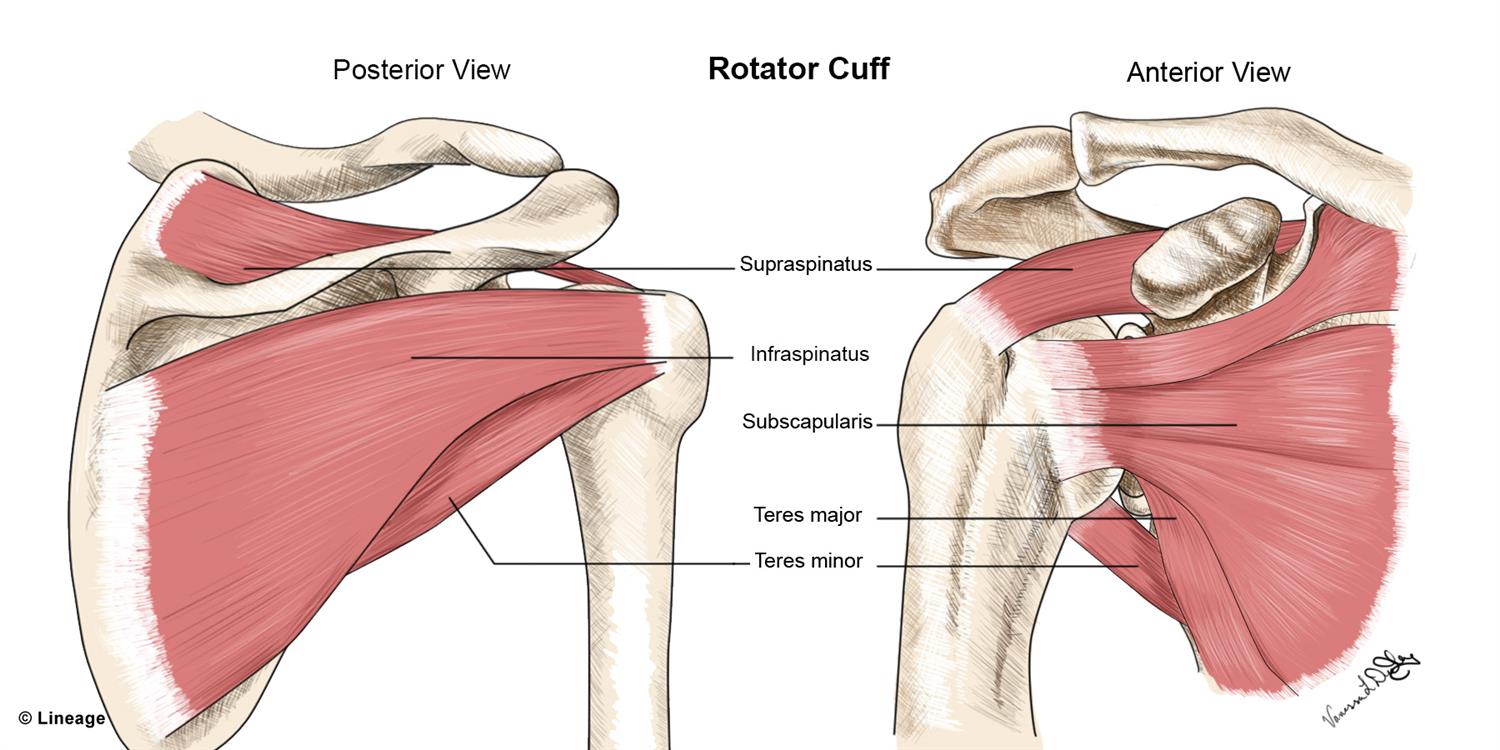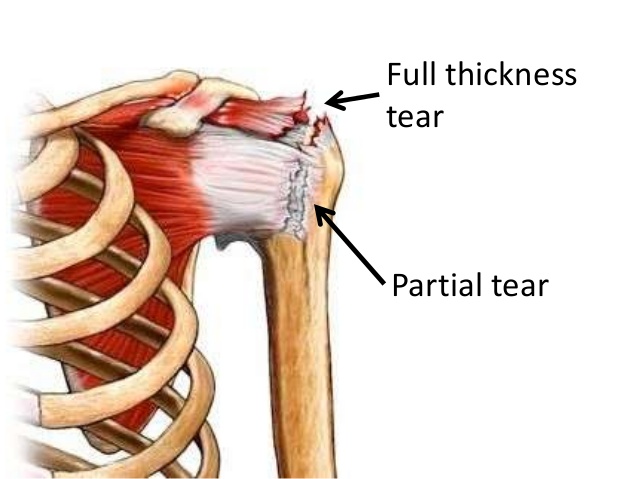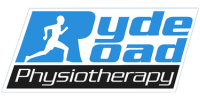What is the Rotator Cuff?
The rotator cuff is a group of four muscles and tendons in your shoulder, these muscles all originate from the shoulder blade and attach to your upper arm. They provide stability in the shoulder by holding the ball of the shoulder in the socket during movement.

What are Rotator Cuff Tears?
Rotator cuff tears are very common and are either caused by an acute injury or from prolonged overuse of the shoulder and will cause pain and loss of function.
- Acute tears have a sudden onset and are usually caused by a fall, lifting a heavy object or a sporting injury
- Chronic tears develop much slower and are more common in the older population.
Acute tears will result in significant pain in the shoulder and it may be difficult for you to lift your arm. Chronic tears tend to have a deep ache that may worsen at night when sleeping on the shoulder. Both will result in weakness and you may have difficulty reaching behind and across your body.
As we age the tendons gradually degenerate and fray causing tears, about 40% of people have chronic rotator cuff tears but most have no pain, this is a normal part of agein similar to wrinkles on the skin.
Chronic tears that become painful are more common in people such as builders or painters whose work requires repeated activities with the arms above shoulder height.
How are they diagnosed and treated?
A physiotherapist will listen to your history, then asses your shoulders strength and range of motion to make a diagnosis. If necessary, your physiotherapist may refer you for imaging to confirm the diagnosis.
A full thickness tear occurs when the tear extends from the top to the bottom of the tendon while a partial thickness tear affects a portion of the tendon, but it does not extend all the way through. Your pain and symptoms are not wholly related to the size of the tear, they are more directly influenced by the strength and function of your shoulder muscles.

Most partial thickness tears will improve with physiotherapy and a strengthening program for the shoulder. If after 3 months you have had significant improvement, then you are unlikely to need surgery.
In order to maintain a symptom free shoulder with a tear, it’s necessary to incorporate rotator cuff strength exercises into your normal routine, since pain can return if your shoulder becomes weak.
When should Surgery be considered?
A full thickness tear may require surgery to restore normal shoulder function and it’s usually considered in the following groups of people:
- If the patient is aged under 60
- If there is a complete tear of the tendon
- If there is not significant improvement after 8-12 weeks of physiotherapy
- In young and active people and the sporting population
- If your occupation requires heavy, repeated or overhead shoulder tasks
If you do have surgery, then at least 6 months of rehabilitation will be needed to regain range of motion and strength before you can return to normal activities
What is the take home message?
- Pain or discomfort is your bodies way of telling you that something is wrong
- If you perform repeated overhead activities for work or sport, it’s important that you seek assistance at the first sign of pain.
- Early treatment may help you to reduce the risk of developing or worsening a rotator cuff tear
- Smoking can reduce the blood flow to tendons, increasing the risk of a tear
- Your physiotherapist will help you to strengthen your rotator cuff muscles, give you advice on modifying work duties and guide you on returning to normal activities
